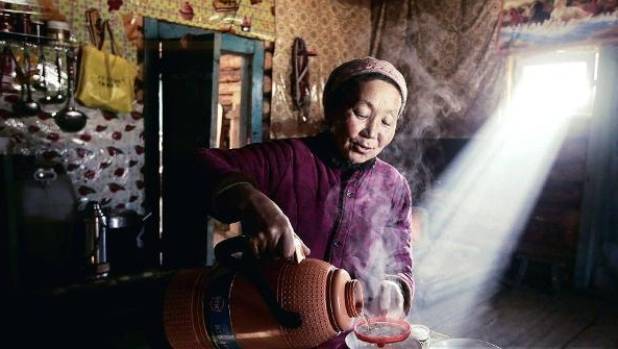UN accuses China of holding over a million Muslims in secret detention centres video
Sat 01 Sep 2018, 20:15:15

They are the detainees whose very existence China denies, as many as a million Uighur and other Muslim people who human rights activists claim are being held in a vast web of detention camps in western China.
A United Nations committee in Geneva examining China's record on racial discrimination rebuffed Beijing's denials of the re-education camps and called on it to acknowledge the existence of the facilities and release those who are being detained.
In a report released on Thursday, the committee dismissed China's justifications that it faced a terrorist problem in the Xinjiang province as nothing more than "a pretext" for detaining the Muslim minorities.
A bipartisan group of 17 US lawmakers, meanwhile, urged the Trump administration to sanction Chinese officials and companies allegedly involved in the detention centres.
During hearings on China's human rights record by the United Nations' Committee on the Elimination of All Forms of Racial Discrimination, Gay McDougall, an American human rights attorney and committee vice chairwoman, cited credible reports that over 1 million Muslim people had been detained and said Xinjiang had been turned "into something that resembles a massive internment camp that is shrouded in secrecy".
The UN committee report expressed alarm over "numerous reports of detention of large numbers of ethnic Uighurs and other Muslim minorities held incommunicado and often for long periods, without being charged or tried, under the pretext of countering terrorism and religious extremism".
Chinese Foreign Ministry spokeswoman Hua Chunying rejected the accusations, saying they had "no factual basis."
"As for certain counterterrorism and stability maintenance preventive measures, I think that internationally this is in general use by lots of countries," she added.
In its submission to the UN committee earlier this month, China said that "there are no such things as re-education centers or counter-extremism training centers in Xinjiang," but did note the region faced a terrorism problem. It said the claims that a million Uighurs were being held in re-education centres were "completely untrue."
China's response to the committee, delivered by Chinese representative Hu Lianhe, did mention what it called vocational and employment training centres, where people convicted of minor offences were sent "to acquire employment skills and legal knowledge with a view to assisting in their rehabilitation and reintegration".
They offered no further details, including how many people were at these centres or whether they were being held against their will.
Hu said China
has jailed convicted terrorists in Xinjiang.
has jailed convicted terrorists in Xinjiang.
The UN committee called on China to provide detailed information on the number of people detained in the last five years in the region and the duration and grounds for their detention. It also sought information on what kind of training people received at the vocational centres, including any political content.
China should also eliminate travel restrictions affecting Muslim minorities and hold government officials accountable for racial profiling of those detained, the committee said.
The 17 US lawmakers, including Republican Senator Marco Rubio, and Republican Representative Christopher H Smith, urged Washington to sanction companies and individuals, including Chen Quanguo, the Communist Party secretary in Xinjiang who previously gained attention implementing tough security policies in Tibet.
"Muslim ethnic minorities are being subjected to arbitrary detention, torture, egregious restrictions on religious practice and culture, and a digitized surveillance system so pervasive that every aspect of daily life is monitored," the letter from the lawmakers said.
The Trump administration has shown a willingness to sanction officials using the Global Magnitsky Act.
In December, the Trump administration slapped sanctions on Gao Yan, a Chinese police official in Beijing, for denying medical care to Cao Shunli, a human rights activist who died in custody. Another alleged human rights abuser hit with sanctions is Myanmar general Maung Maung Soe, who was accused of the ethnic cleansing of Rohingya people.
Originally, the Magnitsky Act of 2012 was used to impose travel bans and freeze the assets of Russian officials after Sergei Magnitsky, an attorney who exposed a Russian fraud scheme, was jailed and died in prison. But use of the act began to widen in 2016 to allow sanctions against human rights abusers.
Hua, the Chinese spokeswoman, said China's human rights record is far better than America's.
"If China's policies on ethnic minority groups and the equal rights enjoyed by them are viewed without bias and prejudice, the conclusion will be drawn that China's policies and record in this regard are actually far better than the US.
"These US lawmakers have no right to make these unwarranted accusations on ethnic minority issue against China," she said. "I would like to advise those US lawmakers, who are paid by taxpayers' money, to focus on doing their job and serving Americans, instead of poking their noses in other countries' domestic affairs, acting as some kind of 'human rights judge' to make groundless accusations, or even threaten to impose unreasonable sanctions."
No Comments For This Post, Be first to write a Comment.
Most viewed from International
Most viewed from World
AIMIM News
Latest Urdu News
Most Viewed
May 26, 2020
Do you think Canada-India relations will improve under New PM Mark Carney?
Latest Videos View All
Like Us
Home
About Us
Advertise With Us
All Polls
Epaper Archives
Privacy Policy
Contact Us
Download Etemaad App
© 2025 Etemaad Daily News, All Rights Reserved.

.jpg)
.jpg)
.jpg)






.jpg)


.jpg)
.jpg)
.jpg)
.jpg)
.jpg)
.jpg)
.jpg)
.jpg)
.jpg)
.jpg)
.jpg)
.jpg)

















